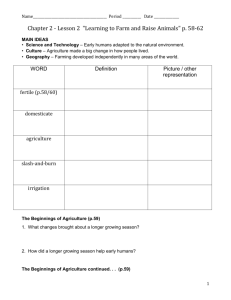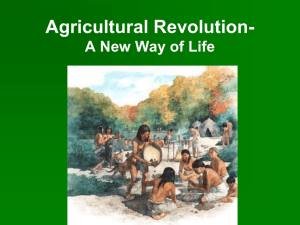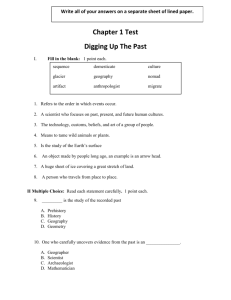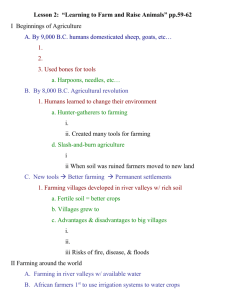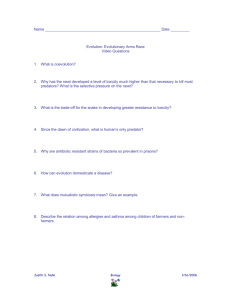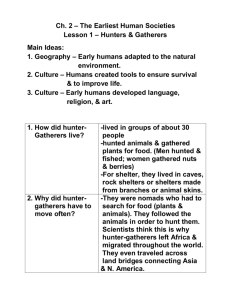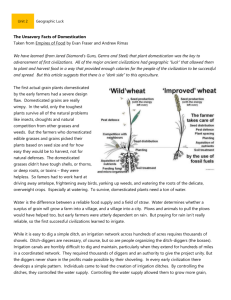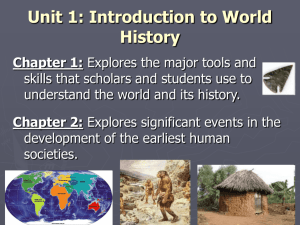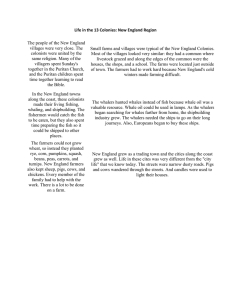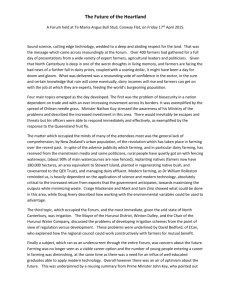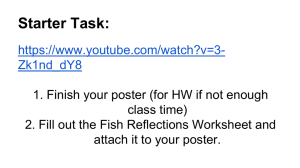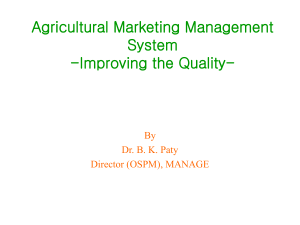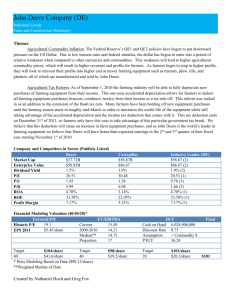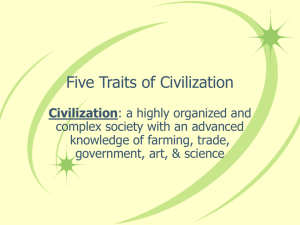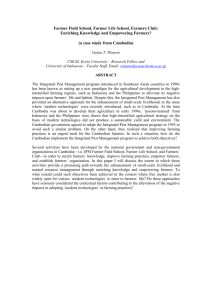Chapter 1: Digging Up the Past
advertisement
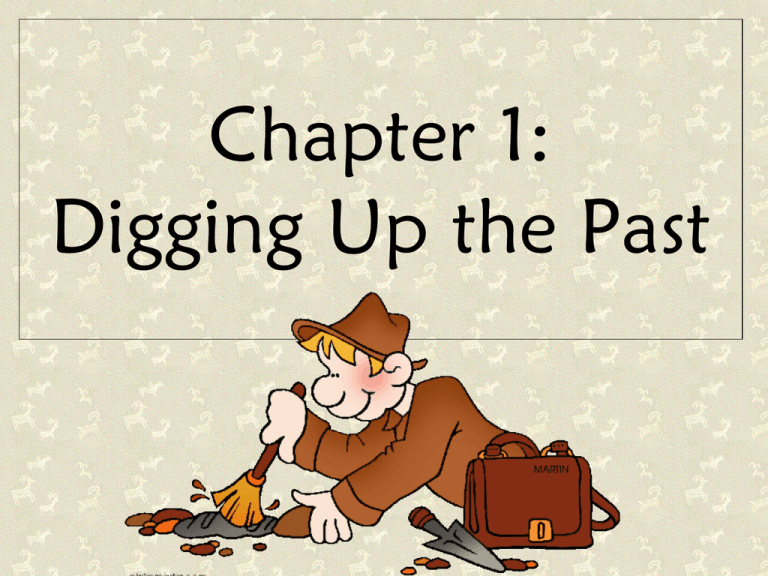
Chapter 1: Digging Up the Past Studying the Past • To learn about prehistoric people archaeologists study artifacts • Archaeologists help us learn about humans from the past before the development of written language. Lesson 2: Early Farmers Chapter 1 Early Farming • The Ice Age ended leaving land suitable for farming •Grains were the first plants to be domesticated • Dogs, goats, cattle, and sheep were the first animals to be domesticated • Early people could now stay in one place instead of being nomads people could live in villages Village Life • Farmers and herders had a surplus of food surplus = extra • Social divisions occurred = the work was split up - toolmakers, farmers, herders, etc. Check Point: Answer in NB 1. Why were early humans able to become farmers The Ice Age ended, leaving land suitable for farming 2. Put the following events in sequential order: A. People begin to live in villages B. The Ice Age ended 10,000 years ago C. Early humans began to farm and domesticate wild animals Lesson 3: Developing Culture Chapter 1 Defining Culture • Culture is a learned way of life that includes technology, customs, beliefs, and art • Anthropology is the study of how people have developed and live in cultural groups • Culture developed around their available resources and geography Be Anthropologist • Artifact: Early wooden harpoon with bone and vine rope • Location: along the Susquehanna River • This is evidence of a culture that …. Sequence of Events: 1. 2. 3. 4. Ice Age ends 11,000 years ago Early people domesticate plants and animals Early people begin to live in villages Early people develop complex cultures based on resources and geography CLASS ASSIGNMENT 1. Read pages 27 – 29 2. Complete Lesson 3: Developing Cultures work sheet 3. Complete Use Parallel Time Lines work sheet * Timed activity = 20 minutes*

